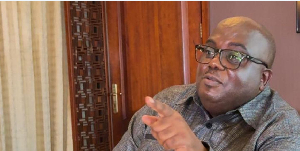Accra (Greater Accra), 8th June 99 -
Mr Samuel Nuamah Donkor, Minister of Health, on Monday called on health experts in West Africa to rise up to the challenge of reducing or eliminating buruli ulcer which has become a public health problem.
Mr Nuamah Donkor noted that the early recognition of the disease and its prompt and effective management at the early stages is a common challenge to both the community and service providers.
"We need to examine how the incidence of morbidity associated with the disease can be reduced.
"We know the cause of the disease but we need to know much more about how it is transmitted and spread."
He was opening a four-day inter-country workshop on the control of buruli ulcer in the West African Region organised by the World Health Organisation (WHO) in collaboration with the Ministry of Health in Accra.
Programme managers and experts from Ghana, Benin, Togo, Nigeria, Liberia, Cote d'Ivoire and Guinea will examine and develop a generic framework to facilitate the design of a control strategy.
The meeting will also review country efforts in developing a national programme for the disease and discuss priority research questions needing urgent investigations.
Buruli ulcer usually manifests as a nodular swelling which later develops into a chronic ulcer with varying degrees of necrotic tissues.
It spreads and affects deeper tissues and bones leading to loss of function, deformity and the risk of amputation and death.
It is known to be endemic in more than 25 countries in Central and West Africa, Western Pacific, Asia and South America.
Mr Nuamah Donkor noted that there is the need to devise strategies and work with communities and families to ensure early detection and reporting on one hand and prompt provision of effective medical measures.
He said Africa is afflicted with many health problems that adversely affect socio-economic development adding if "we are to attain our desired status in the next millennium, we must safeguard our human capital.
"The challenges of rehabilitating those with deformities is a formidable one for the government as is the issue of educating and training those who may have dropped out of school."
The Minister noted that majority of the cases of buruli ulcer are found in young people below 15 years of age who suffer pain and deformity even before they become productive and are in a position to contribute to their society.
These patients live in the rural areas where access to health care is poor and the cost of care quite high.
"There is a need to explore ways to finance the cost of caring for these patients," he said.
Dr Martin Mandara, WHO Representative, said buruli ulcer is the third most common micro-bacterial disease after tuberculosis and leprosy and is known to cause much human suffering.
He said the true burden of the disease is not yet known but it has been established that the number of cases are on the increase and are now being reported in areas where the disease was unknown before.
Dr Mandara said in recognition of the growing threat of buruli ulcer as a disease, WHO came up with a Global Buruli Ulcer Initiative which is committed to assisting countries and the global community in finding solutions and
developing new strategies for reducing the burden of the disease world-wide.
In Ghana, WHO is supporting a national case search and medical management of cases.
General News of Tuesday, 8 June 1999
Source: --
Minister calls for the elimination of buruli ulcer
Opinions











